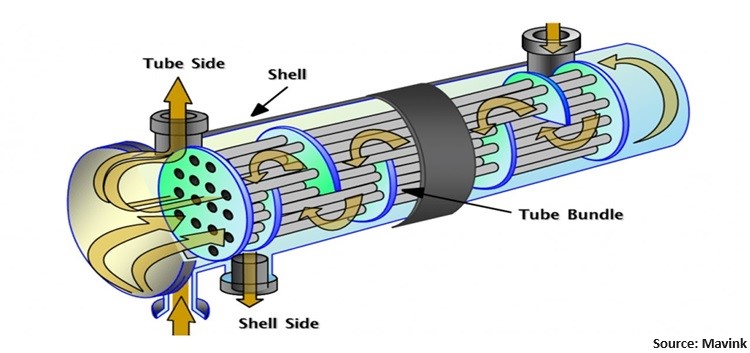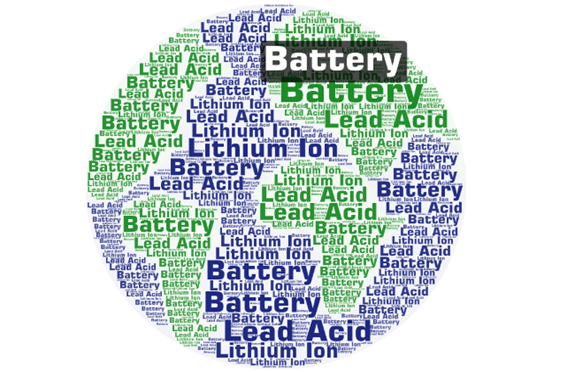The Future of Heat Exchange: Trends and Innovations Shaping the Industry
17-Sep-2024

Introduction
In recent years, the heat exchange industry has witnessed remarkable transformations driven by technological advancements and innovative approaches. From enhanced heat transfer mechanisms to integrating renewable energy sources, the industry has embraced a wide array of innovative solutions to maximize efficiency and minimize environmental impact. These advancements have revolutionized the way heat exchange systems operate and contribute significantly to sustainability efforts and energy conservation initiatives. Let's delve into the trends and innovations that are shaping the landscape of this dynamic industry.
Revolutionizing Efficiency with Smart Heat Exchange Systems
The heat exchange industry is undergoing a significant transformation with the widespread adoption of smart technologies. These innovative systems integrate advanced sensors and automation, enabling them to operate more efficiently than traditional heat exchange systems. Smart heat exchange systems can make real-time adjustments to optimize heat transfer processes by continuously monitoring numerous factors, including temperature and flow rates. This ensures that heat is effectively exchanged between fluids and minimizes energy wastage, which, in turn, leads to substantial cost savings for businesses.
Furthermore, the incorporation of data analytics and machine learning improves the capabilities of smart heat exchange systems. Companies can obtain valuable insights about their operations by examining large volumes of data generated by sensors and other sources. This allows them to proactively identify patterns, predict potential issues, and optimize performance. For example, machine learning algorithms can gather knowledge from previous performance data to adjust system parameters automatically for optimum efficiency under different operating conditions.
Overall, the adoption of smart technologies in the heat exchange industry leads to improved operational efficiency and contributes to sustainability efforts. Companies can minimize their environmental footprint by reducing energy consumption and optimizing resource utilization while realizing significant cost benefits. This trend underscores the importance of embracing technological advancements to drive positive change and create a more sustainable future for the industry.
Several companies are actively involved in developing smart heat exchangers. Danfoss India, a global leader in engineering solutions for infrastructure, climate, and energy sectors, introduced its latest innovation. It is the Microchannel Heat Exchanger (MCHE) technology that utilizes the Next Gen Evaporator in early 2024. This advanced design offers superior benefits compared to traditional fin tube heat exchangers. These benefits include high adaptability to various application conditions and the ability to accommodate changes in air flow, mass flow, and refrigerant densities.
Harnessing the Power of Renewable Energy Sources
The integration of renewable energy sources marks a significant shift in the heat exchange sector, reflecting a broader global movement toward sustainability. The increasing awareness about the environmental impacts of traditional energy sources and the urgent need to transition toward cleaner alternatives drive the trend.
Renewable energy technologies, including solar thermal collectors and ground-source heat pumps, offer immense potential for the heat exchange industry. Solar thermal collectors, for instance, harness the abundant energy from the sun to generate heat. In contrast, ground-source heat pumps utilize the consistent temperature of the Earth to offer heating and cooling. These technologies reduce reliance on finite fossil fuels and offer a more environmentally friendly alternative. This is due to the minimal emissions of greenhouse gases during operation.
Moreover, the integration of renewable energy sources into heat exchange systems presents opportunities for greater energy independence and resilience. By diversifying energy sources and decentralizing energy production, businesses and communities can reduce their vulnerabilities to supply disruptions and price fluctuations in traditional energy markets.
Furthermore, the adoption of renewable energy solutions aligns with broader sustainability goals and regulatory requirements. Many governments and organizations worldwide are implementing policies and incentives to encourage the uptake of renewable energy technologies. This would create favorable conditions for innovation and investments in the heat exchange sector.
Overall, the integration of renewable energy sources represents a transformative shift in the heat exchange industry. There will be far-reaching implications for environmental sustainability, energy security, and economic development. By embracing these technologies, stakeholders can reduce their carbon footprint and contribute to creating a more resilient and sustainable energy future.
Advancements in Material Science
Material science is a pivotal area of research driving significant advancements in heat exchange technologies. The quest for novel materials with enhanced properties such as superior thermal conductivity, corrosion resistance, and durability has become increasingly important in the development of more efficient and durable heat exchange systems.
One of the key insights lies in the recognition of the critical role that materials play in the performance and longevity of heat exchange equipment. Traditional materials may fall short in meeting the demands of modern heat exchange applications, particularly in industries with extreme operating conditions or aggressive environments. Therefore, researchers actively explore innovative materials that can withstand these challenges while maintaining optimal performance over time.
Advanced alloys, for instance, are engineered to possess specific characteristics tailored to the requirements of heat exchange applications. By carefully selecting alloy compositions and optimizing processing techniques, scientists can create materials that exhibit exceptional heat transfer properties, corrosion resistance, and mechanical strength. Similarly, the development of specialized composites and coatings offers opportunities to enhance the durability and performance of heat exchange components, even in harsh operating environments.
Furthermore, insights from material science research are driving multidisciplinary approaches in heat exchange system design and engineering. Researchers can develop holistic solutions that optimize heat transfer efficiency while addressing durability and reliability concerns. They can achieve this by integrating knowledge from materials science, fluid dynamics, thermodynamics, and other disciplines.
Ultimately, by pushing the boundaries of material science, the heat exchange industry is poised to unlock new possibilities in design, manufacturing, and performance optimization. These innovations drive technological advancements and contribute to the competitiveness and sustainability of heat exchange systems in the global market.
Integration of artificial intelligence (AI)
The integration of artificial intelligence (AI) into heat exchangers holds tremendous promise for revolutionizing their efficiency and performance. One of the major insights is the potential for AI to optimize heat exchange processes in real time based on dynamic data inputs and system parameters. Heat exchangers can adapt and adjust their operations to changing conditions by leveraging AI algorithms. This, in turn, maximizes heat transfer efficiency while minimizing energy consumption.
Furthermore, AI-powered predictive maintenance can offer invaluable insights into the health and performance of heat exchangers. By analyzing operational data and identifying patterns indicative of potential issues or failures, AI algorithms can predict maintenance needs and recommend proactive measures to prevent costly downtime. This proactive approach enhances reliability and extends the lifespan of heat exchangers, reducing overall maintenance costs and improving operational efficiency.
Moreover, AI-driven optimization techniques can enable heat exchangers to learn and adjust over time, steadily enhancing performance and efficiency. By analyzing historical data and monitoring operational trends, AI algorithms can recognize opportunities for optimization and automatically adjust system parameters for optimal performance. This ongoing process of learning and adaptation enables heat exchangers to achieve higher levels of efficiency and effectiveness over time. This will ultimately lead to significant cost savings and environmental benefits.
Overall, the integration of AI into heat exchangers represents a transformative leap in the capabilities of these systems. Heat exchangers can deliver unparalleled performance, reliability, and efficiency by harnessing the power of AI-driven optimization and predictive maintenance. This, in turn, drives innovation and competitiveness in the industry.
Conclusion
Looking ahead, the future of heat exchangers holds great promise, with advancements poised to enhance their efficiency and sustainability. As materials science and technology evolve, we anticipate heat exchangers becoming more reliable and adaptable than before by seamlessly integrating renewable energy sources for cleaner operations. With features such as self-repairing materials and AI-driven optimization, these systems are expected to deliver optimal performance even in fluctuating conditions. By harnessing renewable energy, heat exchangers will play a vital role in reducing environmental impact while efficiently meeting our heating and cooling needs. As research and development progress, heat exchangers are poised to become integral components of a more sustainable future, where energy usage is optimized and environmental considerations are prioritized.
About the Author
 Arjun Chetry is an accomplished researcher and writer with a history of more than three years of conducting thorough research. With a professional background as a research analyst, he has a keen eye for analyzing industry trends and understanding consumer behavior. His dedication to exploring diverse subjects and conducting in-depth analyses has equipped him with a deep understanding of research intricacies. He remains committed to staying up-to-date with the latest market trends and recognizing their impact on business and society. His well-rounded interests and experiences contribute to his ability to offer insights and perspectives on various topics. The author can be reached at info@nextmsc.com
Arjun Chetry is an accomplished researcher and writer with a history of more than three years of conducting thorough research. With a professional background as a research analyst, he has a keen eye for analyzing industry trends and understanding consumer behavior. His dedication to exploring diverse subjects and conducting in-depth analyses has equipped him with a deep understanding of research intricacies. He remains committed to staying up-to-date with the latest market trends and recognizing their impact on business and society. His well-rounded interests and experiences contribute to his ability to offer insights and perspectives on various topics. The author can be reached at info@nextmsc.com








